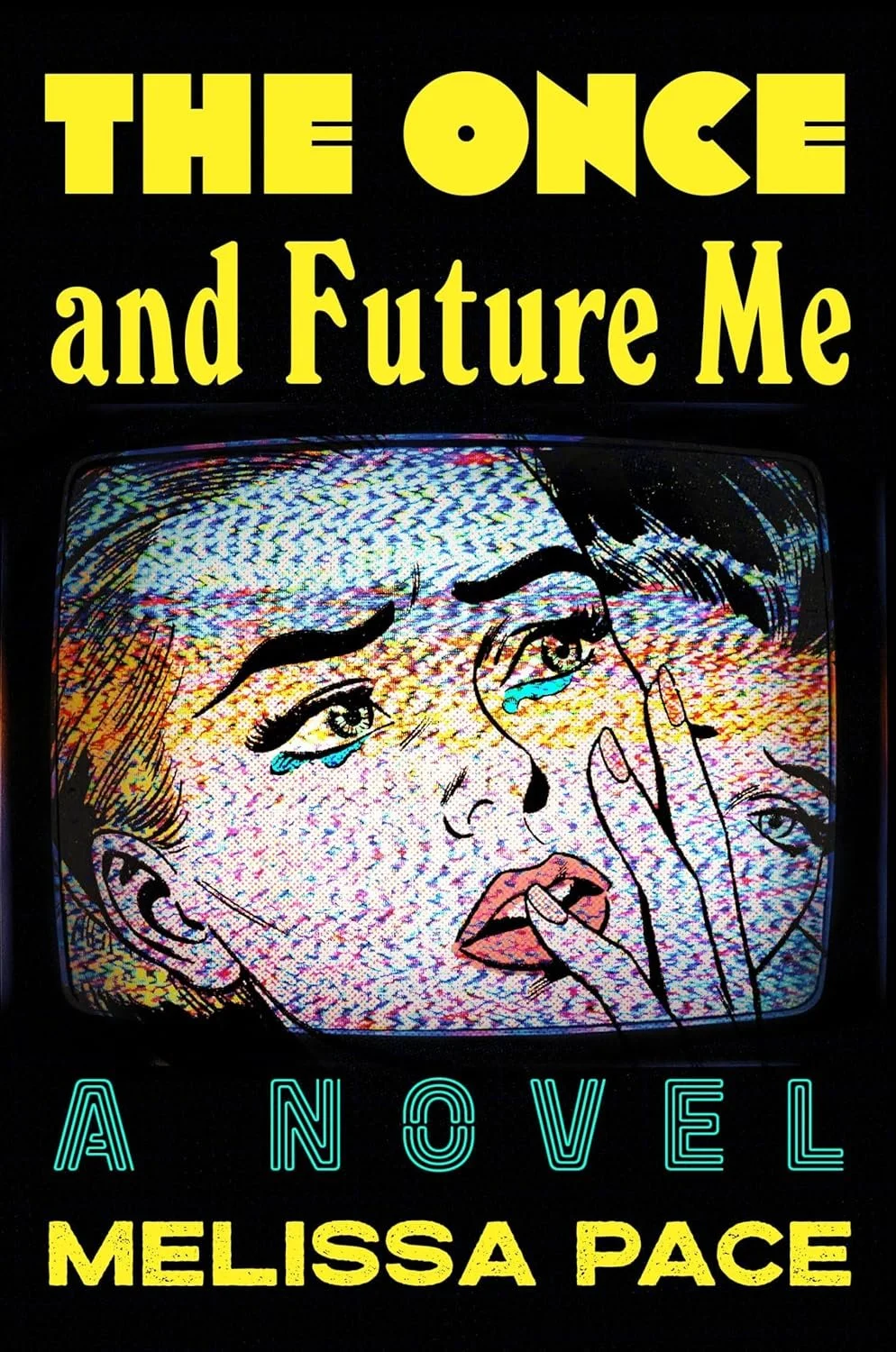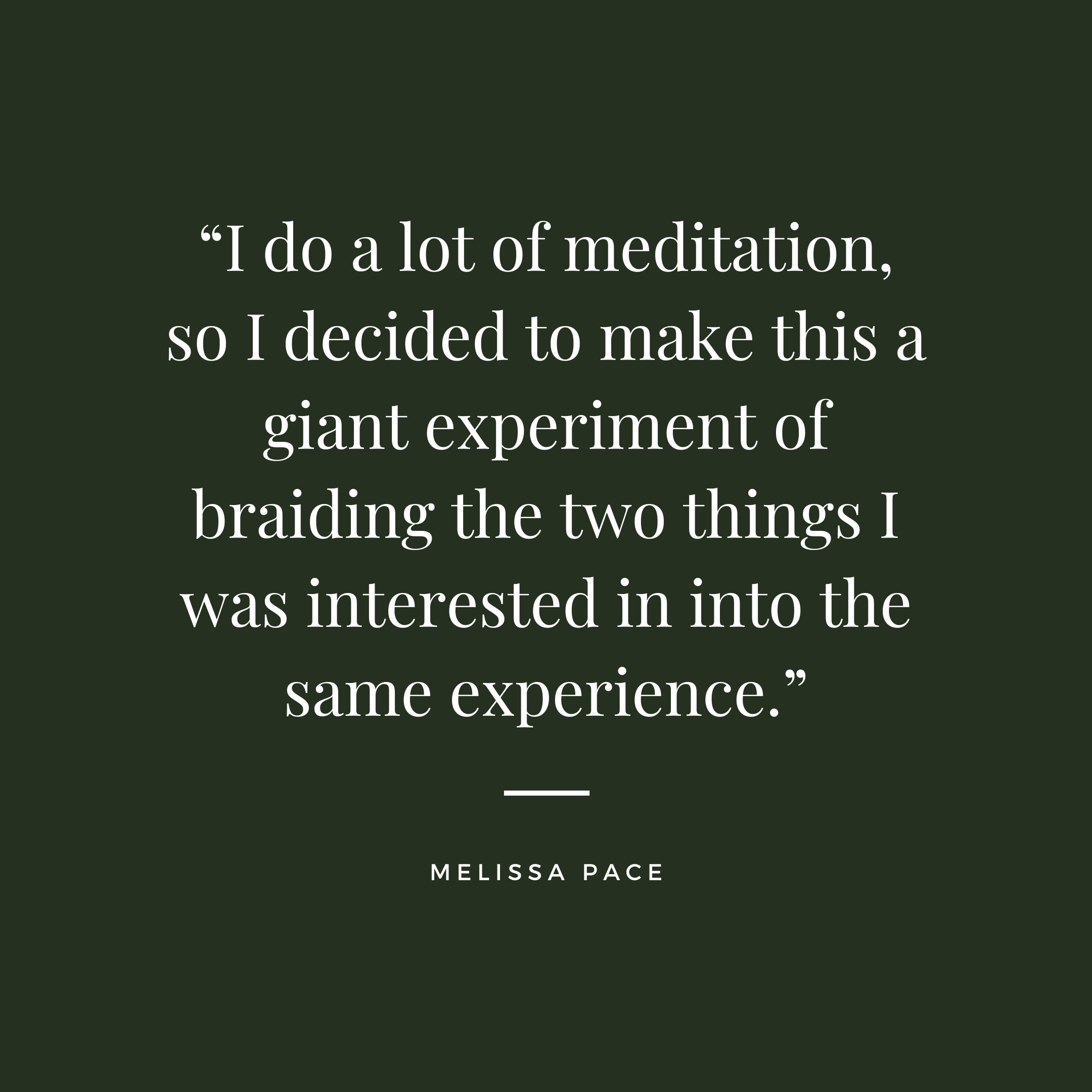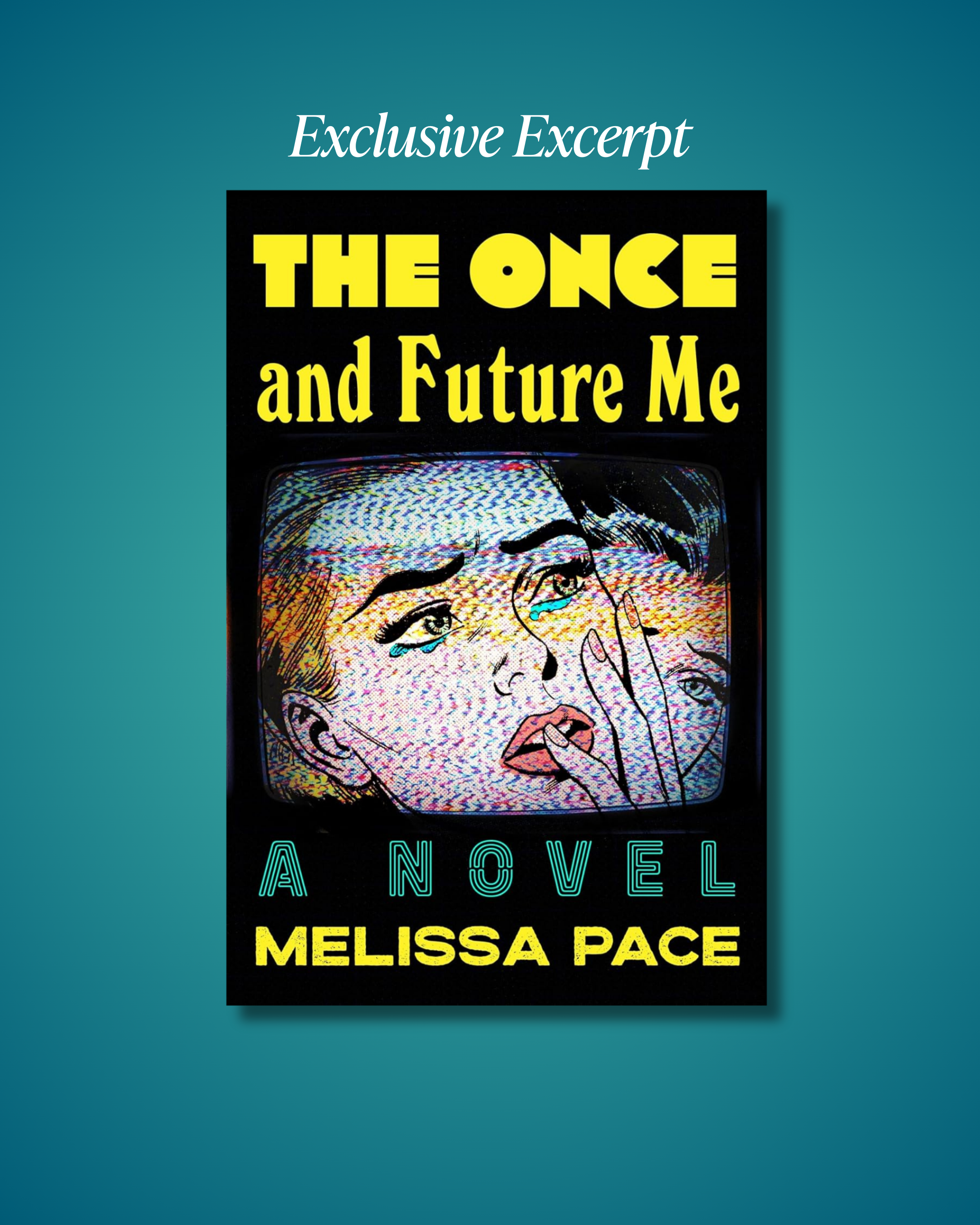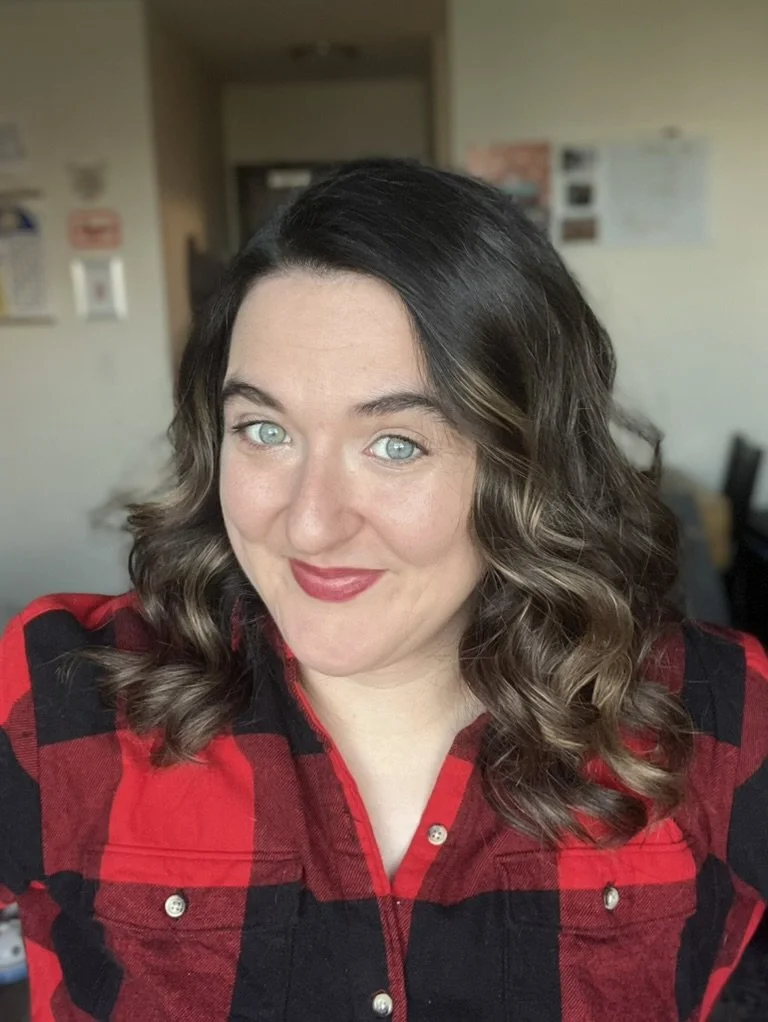Melissa Pace On Debut “The Once and Future Me,” Exploring the Faultiness of Memory, and Getting Answers from the Subconscious
Photograph of Melissa Pace by Mary Beth DeLucia
In the first scene of Melissa Pace’s debut novel The Once and Future Me, the main character wakes on a transport bus in the 1950s. She doesn’t know who she is or how she got there. All she has is the voice in her head telling her she has something of dire importance to do. When the bus arrives at a psychiatric hospital, she’s told her name is Dorothy Frasier and that she has been committed for her schizophrenia and violent delusions of grandeur. She is put through some of the worst treatments of the era, all to silence the voice in her head that eggs on her delusions. She eventually begins to accept what the doctors are telling her. But what if her delusions are true? What if she has something important to do to save the world?
The Once and Future Me is equal parts historical and dystopian. It combines the horrid history of the treatment of psychiatric patients and difficult women with speculative fiction, creating a novel that sows doubt in the reader about what is real and who we should trust. Pace’s twisty debut feels especially timely as it engages with women’s rage and self-reliance. I found myself angry and anxious on behalf of women in the 1950s, the 2020s, and women in the decades to come who will have to continue to fight.
Below is my conversation with Melissa Pace. We discuss how bad memory became the foundation of her novel, her background writing television pilots, and so much more. Please note: our discussion contains spoilers for The Once and Future Me, so please proceed with caution!
Meghan: First, I want to talk about what brought you to writing this book, because I know you have a background as a writer and editor for Elle. I’m curious, what drew you to writing fiction?
Melissa: That’s funny, because, for a long time, I couldn’t read fiction. Fifteen years, I just couldn’t. Both my parents had died within three weeks of each other, and it just broke something in me a little bit. I had no patience for imaginary people’s plights for a long time. So, it surprises me that I’ve ended up doing this. After years of trying to sell TV pilots to break into television – because I was over forty and a woman, people were very direct about it, I was amazed – they said, “You’re not gonna get anywhere unless you sell them on an entire series, so you have to write an original pilot.” I wrote several, and this book grew out of one of them that I just couldn’t let go of. I put it away, finally gave up on TV writing, to get “grown up” and “serious” at a very late age. So, I was a realtor, and I’d had two really thorny transactions that finally closed in November of 2016. I rewarded myself, because there’s just this need to do anything creative. I promised myself I’d give it a try as a reward. I plunged into that at the beginning of November, and then we had the election. It was fueled by real estate and an element of rage. Can you sense the real estate in it?
Meghan: Yeah!
Melissa: I am an architecture major, so there is a certain amount I care about what the places are that I’m describing. And the mental hospitals – many of them at the time were left over from when they called them asylums – and they had very big, ambitious goals for benevolent care of mental patients, but they just [got overcrowded]. There were 600,000 people in mental hospitals in 1955, so that was the peak year.
I was fascinated by memory, or lack of memory. My memory has always been bad. When I was a kid, I was called “the absent-minded professor.” Thank God smart phones came along. They saved my life. I used to write everything on my hand when I was raising three kids, probably frightening to the other parents around me. I’ve depended on people to fill in the blanks – people with better memories, which is almost everybody, including my kids at this point – over the years. It makes you feel very vulnerable and embarrassed. And also, it makes you feel a little nervous, like, what if they’re lying to me? What if you were completely dependent on other people’s definitions of you and their will and their desires to control you? What would that be like? What if you don’t have any of the memories that formed you in bad and good ways? All the damage that was done to you – which, in this particular case, has happened to Bix – is wiped away, so you are left with your instincts and your autonomic nervous system and its reflexes. She has this voice in her head, which is basically the old version of her, so she’s completely untethered from herself. It’s not a great position to be in, where she arrived. That’s what started it: a woman who does not know who she is but has something very important to do. So, from there, I was like, “Where is the worst place to put this person, the worst time to put her, and the worst situation?” And I thought, the 1950s, with the patriarchal power structure and huge constraints on conformity and acting out, questioning anything, being antisocial, defiant. I did not grow up in the 50s. I’m not that old, but there are lingering parts. I had a sense of the ghost past of the world behind me, growing up in the 60s and the 70s, that was still present. It made that part easier for me.
Meghan: What did your research look like into those psychiatric facilities, especially for women? And how did you translate that into scenes?
Melissa: I did a lot of research on the most notorious, huge asylums. It was that transitional stage where sometimes they still called them asylums, sometimes they called them hospitals. The worst ones were these [massive] early twentieth-century, late nineteenth-century buildings called the Kirkbride Plan, which they felt would be conducive to mental health. They were so overcrowded by then. The worst places depended on using treatments not just as treatments, but as a way of keeping control over patients, punishing or frightening them to not create more work for them, make it easier. There weren’t any drugs [yet]. It was a time before that, so [there was] electroshock, insulin therapy – all manner of what we think of as “Really?” How did anyone think that was okay? There was the ultimate thing of lobotomies, too, for the patients they just could not control.
[I became] aware of this one particular doctor who became the head of the Psychiatric Association. He was head of it when they put out the first [manual] of terms. He was doing things that were incredibly unethical, basically experimenting a lot on women. He believed that you could wipe the slate clean if you gave them a massive amount of drugs – so that they lost touch with reality – and massive electroshock. Seven days a week, multiple heavy-duty shocks, so that you would regress them to a childlike state, where they could be repatterned. It was called depatterning and repatterning. It turns out that part of it – or all of it – was supported by the CIA and cloaked in their crazy Cold War spy stuff. They wanted the research on how you could extract truth from prisoners and control people, get them to confess, get the truth out of them. So, they were very much interested in his work. I knew, when I was writing the book, that was going to be my guy, [that] basically would be [the character] Dr. Sherman.
[Bix] falls into this trap [where] what she ultimately ends up seeing is so out of this world that it’s exactly what he expects of her.
Meghan: It’s so interesting to know that this started as a pilot, because one of the words that I kept thinking of as I was reading it was “cinematic,” it just engaged me in the way that a really good TV show would.
Melissa: It briefly had life as a pilot, for about a week. It actually had Julia Stiles attached – this is how long ago this pilot was – to play Bix. But the guy that liked it got fired over the weekend and that was that. It was such a shorter, smaller story. I was like, “Okay, just need to expand that, figure out the world.” I did not know when I started the pilot and still didn’t know when I started the novel – I had this idea that she was from the future, and she had this very important thing to do, and it involved the virus. The explanations of the gaslighting and Stokes, her ex-lover slash fake husband – all that, I did not have [yet]. I had no idea what [the backstories were] , how all this had come about, and how the virus in ‘54 was connected to the future.
I do a lot of meditation, so I decided to make this a giant experiment of braiding the two things I was interested in into the same experience. I decided that I will start this, and I will keep up my meditations and will wait for downloads from my subconscious. It sounds nuts now, but it worked. So, it took a long time.
Meghan: I love that. I love meditation as a part of it, because I feel like so many ideas, if not come from my subconscious, definitely are figured out by my subconscious.
Melissa: I would say, “Okay, here’s my question of the day.” Because they never come immediately, and they certainly never come during the meditation because that ruins it. I would meditate, [and then some of the answers] would come in the walk coming back up the hill to my house, or it would just spill in later. I’d always have a notecard with me. Sometimes it’s just a sentence that solves your entire novel. And if you can’t write it down… For years, I would lie to myself and say, “Oh you’ll remember it. It’s so big, how could you forget it?” Now, I know I’m a big liar, so I write everything down.
Meghan: One thing that really stood out to me as I was reading was that I was really feeling the same level of anxiety that the main character was, about “I don’t know what’s true” and that both of these realities seemed plausible to me in the first half of the book. What strategies did you use to balance those competing realities, so that the reader also felt her doubt?
Oh my God. It was so hard, because you have a very intelligent character. And yes, she has had some neural damage, but you don’t want the reader going, “Come on, dummy.” I really worked overtime to make it plausible. The first couple of drafts – and I don’t know, there’s like fifty drafts – it wasn’t there. It was debatable, and I was depending too much on the short trips to the future for [the character] Kyung to explain her theories on it, like “Here, reader, this is why she thinks this.” I went back and really thought “What are the things that would completely undermine [Bix]?”
Originally, when this sold to Holt, I was straddling speculative/sci-fi thriller and psychological thriller, and they require different things [that] the audience unconsciously or consciously expects to see in them. I was trying to do both. That meant really trying to sell people on the idea that the future is real, and so [I revealed it on] the first page. Then you have all this time where everyone is waiting for the main character to catch up with them. Right before [I sold it], I was reading a note that my agent had passed me from a rejecting editor. He said, “I wish I hadn’t known for a lot longer that she was from the future.” And I’m like, “Yes! Exactly!” I was all prepared to pull this thing apart when Holt offered on it. Luckily, the person who was acquiring it also had this separate thought about it. She was in sync with me. It’s a pretty big swing to change it. It involved a certain amount of big edits to get it to the point where anything that hinted at things that we know or slang that we know, which would logically still be around from 2025 to 2035, [was removed]. It all had to come out. All my best, funniest, snarkiest lines, they’re all gone. [Bix] doesn’t see anything clearly in that first [scene]. Only when she’s having what could easily be a psychotic episode does she see the link. The real Dorothy, in that early part, became a little shrunk, so that it wasn’t such a big [question of] “Was she really there or did I make it up?”
At one point – this was before I sold it, so I hadn’t even done that yet – I found out from this guy who I had hired to help me get a mile-high view of this thing, and he said “I thought the husband was a decent guy really far into it.” I think he thought that was bad, that I had snookered him or something. Which, that’s my job! I was like, “YES!” It was like, I’ve got a taste of this. I think I could make this work if I work it enough. I could really get this to a point where everybody is snookered.
Meghan: The voice in her, the voice of Bix, in those early pages – was that always a part of it or did that come later?
Melissa: It wasn’t a part of the pilot. There was no voice in her head originally. She talked to herself. That was one of the problems against acquiring it for a television show. There was so much internal monologue, they said no.
The actual voice came [on] this one day. It was probably a month in. And the whole first page, which is the prologue, just came in almost one piece. That’s when I [thought,] “I could do this. I think I can write this, because I can write that.” The voice is on the first page of the first chapter. And, thank god! She’s alone a lot. I needed that voice, and it couldn't just be in her head, because it’s a modified version of her. I needed, since we don’t know anything about her past, to have some hint of what she was like and what her world was like. Even though the voice also doesn’t know what her job is there, she’s really good at saying, “Well, what about this, what about that?” Questioning her so that you can have this conversation and you can have conflict without her ever having anyone around. I love that about fiction. Nobody has to talk out loud.
Meghan: I want to return to memory. That is something that is something that I have continued to return to as I’ve been reflecting on reading this – the faultiness of memory, how memory makes our sense of self, but also the loss of it shakes our sense of self. Why was it important for you to explore this from a young woman’s perspective?
Melissa: This is true still, I guess, but particularly back then, what you were expected to do and how you were expected to act was so dictated by the outer world and the male outer world and the male gaze. Especially if you were vulnerable and you’re in a confined space and labeled as less than, you’re not going to be taken seriously. That starts wearing away at you, because there’s nobody reinforcing what this weird voice in your head or your gut is telling you.
Read the first two chapters here!
As somebody who’s in their 60s now, I have been so many different people. It freaked me out for years. Suddenly, I had three kids within five years of getting married, losing my parents, and then moving five times during that. We moved to Darien, Connecticut, which is like the 1950s, or it was – probably the most supportive of having stay-at-home moms of any place I could think of at the time and probably still. We moved there from basically Berkeley and Oakland, and I had gotten pregnant with my second child. We planned to have a second child, but we just didn’t plan for it to happen so quickly. They were very close together to the point where I didn’t know if I’d be able to carry two of them when the second one was born. I thought, “This is a nightmare.” But when we moved to Darien, [where] it was like, “This is the way I’m planning my kids, and I’m gonna have four or five.” I suddenly went from being this one person, with parents and siblings who were backing up that version of me as the crazy, nerdy, artsy person to being this stay-at-home housewife. [The exchange is] not inside, because inside you’re still the snarky person, but people are viewing you as a different thing. We would have these dinner parties. It was like being in the 60s. All the men would go into the living room, and the women would all congregate in the kitchen and get the food ready. If you went in to talk to the husbands, you felt like some harlot. I had not been raised like that. I was raised on the westside of LA. My parents were actors and dancers, and we had a very liberal upbringing. Then we moved back to LA. It was a totally different attitude, and I thought differently about myself by what was around me. I’m still myself. You cycle through all these versions of yourself, and it’s like a moving target. I think that’s particularly true for women. Men can have that same, “My self image is my work,” and it carries through their career. Of course, then they have a massive midlife crisis, when they get to a certain age, but up until then it’s pretty good. It’s cohesive. They’ve got it made. Whereas a woman is constantly [going] to pediatrician appointments and they call you “Mom.” I just found it very vulnerable. I think it’s a lot better now. It’s a weird thing. It’s unique to being a woman.
Meghan: As you were writing, what books or TV shows or podcasts or music served as inspiration to you?
Melissa: There is a song. I’ll play it when I need to get back into the vibe of Bix and the story. It’s by a band called James. It’s called “Lullaby.” Of course, you can’t use it on Instagram. It won’t come up on the search. I’m like, “DAMN,” because that would make a really good post. It is very close to mood and vibes and also some of the imagery that happens in it. And then there’s all these kick-ass, vaguely futuristic [songs], like Muse has a few, with the big bass beat, because she’s really two separate vibes going on.
The Handmaid’s Tale. I asked for that for Christmas. I still have the original first edition of it that my mom gave me at Christmas the year it came out. That left an impression on me that probably fed this. Thrillers, in general. I had read [them] when I was in college, but of course I have that long period of time I read all nonfiction. I took this deep plunge. They say, “You have to read, that is the lifeblood of writing.” But when you’re writing, you’re stuck in this thing. You’re insecure, because you’re a debut author. Or, you’re not even at that point yet. Reading other people’s very good words can be demoralizing. I put off reading similar things until I felt I knew what this was. I didn’t want it leeching into [this], because my memory is so bad. Like, “My god, you copied an entire chapter that you memorized in your brain and you didn’t even know it.” Once I had finished it, I started plunging into all manner of science fiction and thrillers because I didn’t feel threatened. Or, if I did, I would pick up one I knew was bad just to boost my spirits. Sometimes that works.
Meghan: It does.
Melissa: That, and spite. Things that seem ostensibly negative can be quite motivating.
Meghan: Do you know what the next project is?
Melissa: It’s one of three. I do eventually want to complete Bix’s story. That is not something I am working on right now, other than thoughts that I jot down. There is a lot, because I did figure out all of the thorny questions, but they didn’t necessarily make it into the book. Plus, there are things that made it into the book, [things that] were planted but weren’t paid off. I would say, “What about this one?” I would gather them all in this master list of things that had not been buttoned up. Each one, my editor was like, “Nope, let it go. It’s fine.” [I said,] “People are going to come at me with pitchforks.” She was like, “No, this will be fine.” There was one thing that she made me take out because she felt like it should be saved for a future book. So, I have all of this stuff, and whenever it occurs to me, I jot it down.
The other two are both thrillers with a speculative element to them. They’re very different from each other. And they’re kind of duking it out in my head which one’s going to be next. Not sure. I haven’t even told my agent about the second one.
Meghan: It’s good that your brain’s giving you options.
Melissa: Yes! It’s weird to be Bix-less after all these years. It’s like the fourth child in the family. It’s freeing and freaky at the same time. Like, can I write a book that does not involve this? We’ll find out!
This interview has been edited and condensed for clarity.
Meghan McGuire
Meghan McGuire (she/her) is a writer and recovering buzzkill. She holds an MFA in Creative Writing from Antioch University – Los Angeles. Her writing has been featured in Porter House Review, Chicago Review of Books, and Lunch Ticket’s Friday Lunch Blog. Her television pilots have been recognized by Stowe Story Labs, Slamdance Screenwriting Competition, PAGE International Screenwriting Awards, and Austin Film Festival Script Competition. Born in Alaska and raised in Maine, Meghan followed her passion for cold places to Chicago where she lives with her cat, Pippin. She is working on a memoir.
Read More







